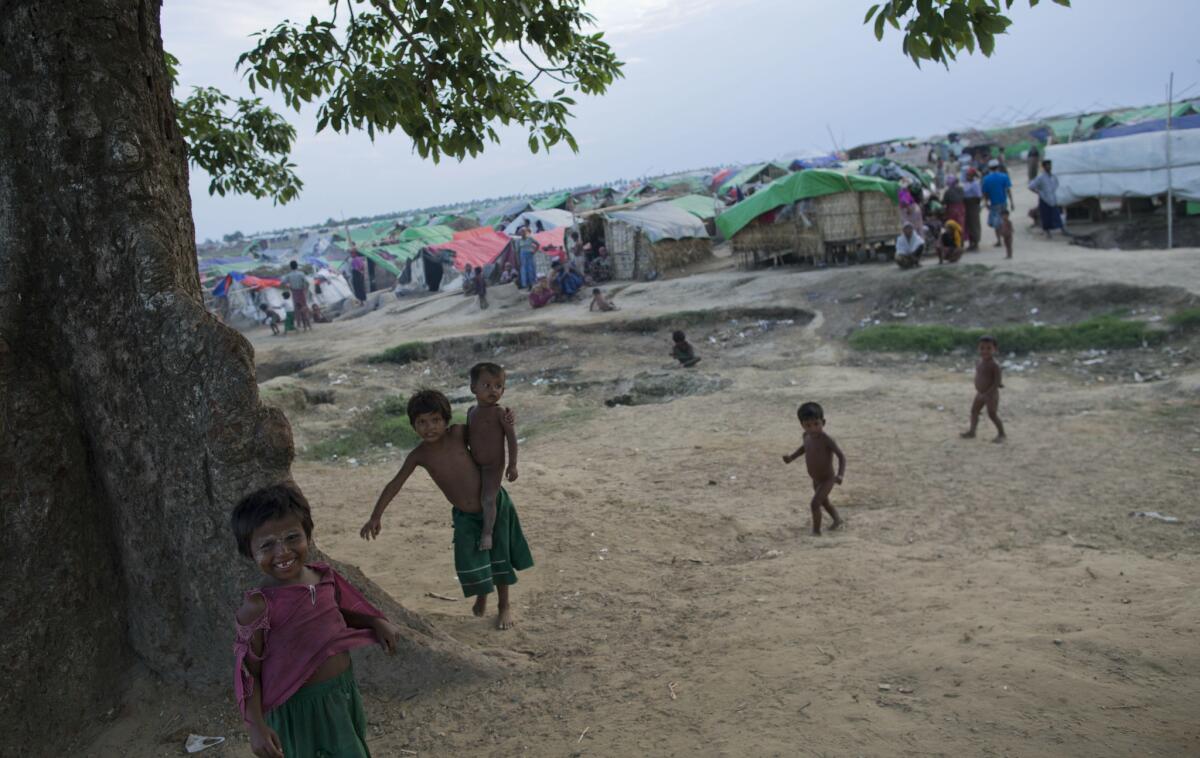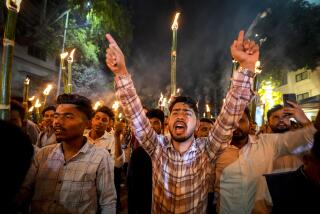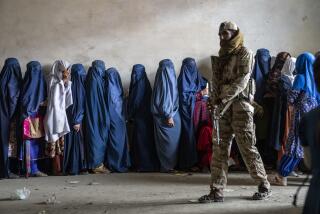Rights group: Myanmar policy discriminates against Muslims

- Share via
NEW DELHI -- A watchdog group Tuesday called on Myanmar’s government to immediately revoke a population-control policy that blocks members of the minority Rohingya Muslim community from having more than two children, measures it said are discriminatory, violate human rights and endanger women’s health.
Rohingya, who account for around 1 million of Myanmar’s 60 million people, are deeply unpopular among the country’s Buddhist majority, which doesn’t consider them citizens even though many Rohingya families have lived in the country for generations.
This weekend, western Rakhine state spokesman Win Myaing told reporters that the 2005 two-child rule for Rohingya -- along with a mid-1990s rule requiring Rohingya couples to obtain permission before marrying -- would be enforced in Buthidaung and Maungdaw townships along the Bangladesh border.
“This is a case of one ethnic group making plans to control the population of another,” said Phil Robertson, deputy Asia director for Human Rights Watch, which issued the report. “This is the worst case of systemic abuse of human rights.”
Sectarian violence between majority ethnic Rakhine Buddhists and Rohingya killed at least 190 people, mostly Muslims, last year and left tens of thousands in settlement camps after their wooden houses were torched or otherwise destroyed. Neither Myanmar, also known as Burma, nor neighboring Bangladesh consider the officially stateless Rohingya as citizens.
Although population controls were among the measures recommended by a national inquiry commission appointed after last year’s violence, the panel said these should not be mandatory, which the Rakhine rules are.
Nobel laureate and human rights champion Aung San Suu Kyi, detained for nearly two decades by the military junta before winning a parliamentary seat in March 2012, has been criticized for failing to condemn discrimination against Rohingya.
On Monday, she spoke out, albeit rather tepidly, against the Rakhine population-control policy. “If true, this is against the law,” Suu Kyi told reporters. If such rules exist, she added, “it is discriminatory and also violates human rights.”
ALSO:
President Obama offers encouragement for reforms in Myanmar
Myanmar panel proposes measures to ease ethnic tensions
Myanmar panel proposes measures to ease ethnic tensions
More to Read
Sign up for Essential California
The most important California stories and recommendations in your inbox every morning.
You may occasionally receive promotional content from the Los Angeles Times.









